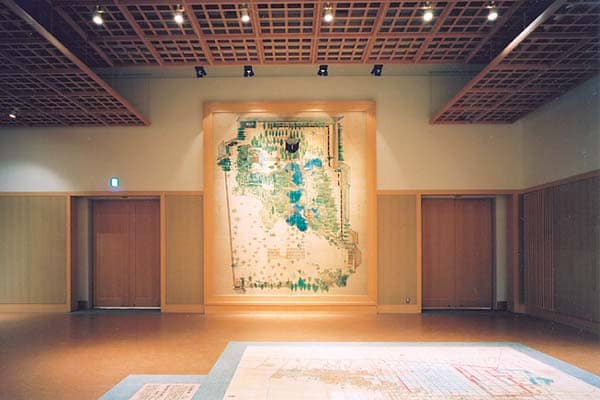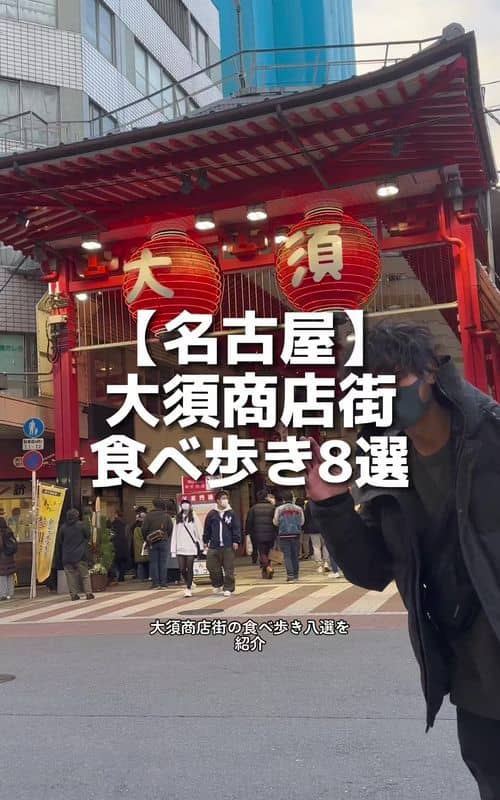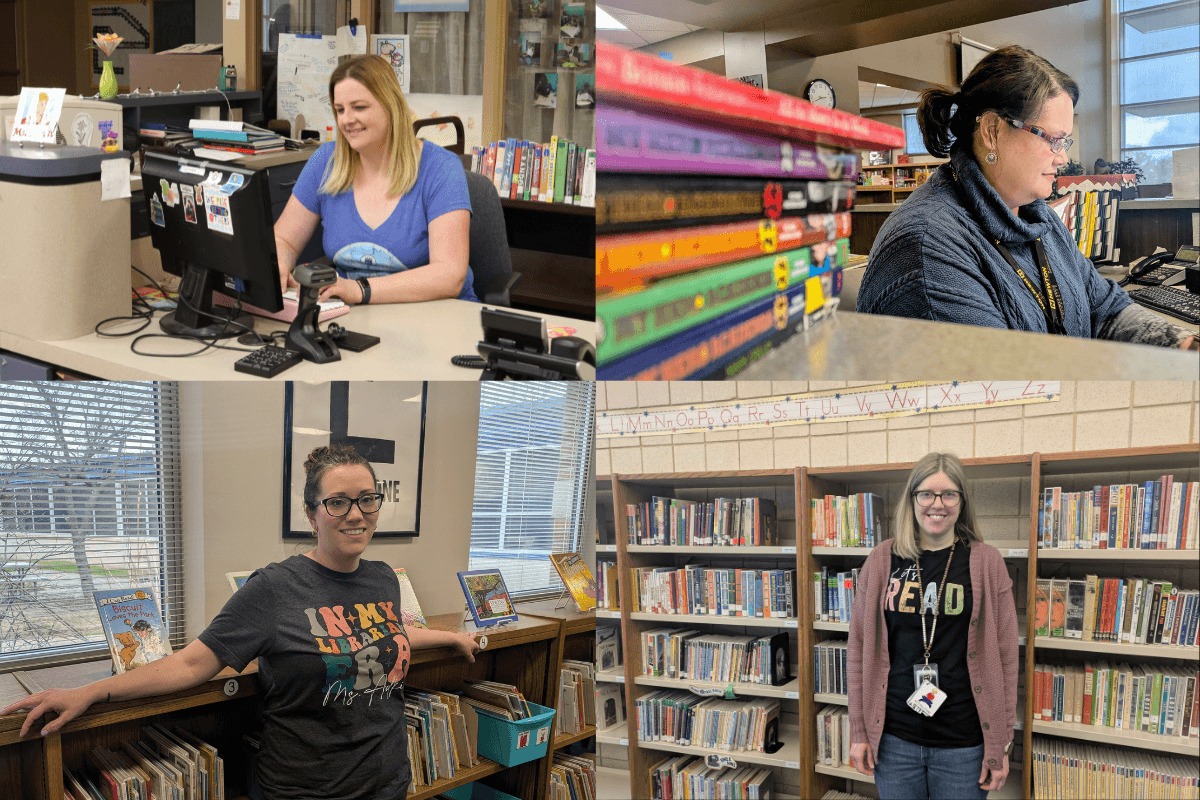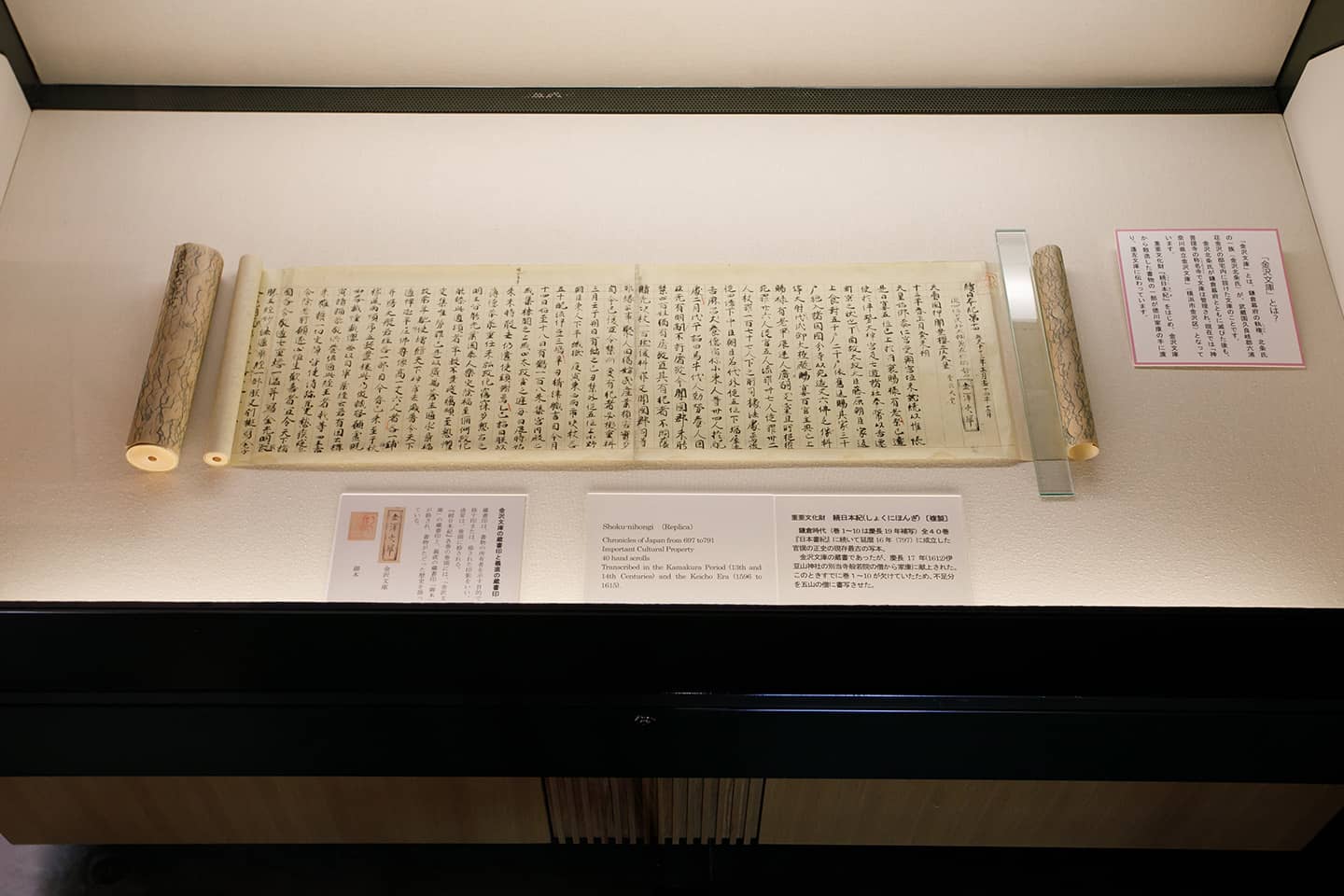Hosa Library
Hosa Library preserves the rich literary heritage of the Owari Tokugawa family, offering a window into Edo-period Nagoya's intellectual and cultural l...

Highlights
Must-see attractions

Social
From TikTok & Reddit
Best Time
Experience unique historical displays
Hosa Library
Best Time
Experience unique historical displays

Highlights
Must-see attractions
Hosa Library preserves the rich literary heritage of the Owari Tokugawa family, offering a window into Edo-period Nagoya's intellectual and cultural life.
"A treasure trove of historical books and maps, offering a deep dive into Edo-period Nagoya's intellectual past."
Free Reading Room Access
The reading room is free to use, perfect for researchers or those wanting to delve deeper into historical documents. :moneywithwings:
Check Exhibition Schedules
Special exhibitions change frequently. Visit their website to see what's on before you go! :calendar:
Highlights
Discover the most iconic attractions and experiences

Owari Tokugawa Collection
Explore thousands of historical books and maps inherited from the Owari Tokugawa family, offering deep insights into Edo-period Japan.

Digital Library Programs
Watch engaging programs that introduce masterpieces and the history of the Yoza Library, offering a comprehensive overview.

Special Exhibitions
Discover rotating exhibitions on diverse themes like Noh, Edo appraisals, falconry, and historical festivals.
Plans like a pro.
Thinks like you
Planning Your Visit
Understand the Legacy
Special Exhibitions & Access
Best Times
Insider Tips
from TikTok, Instagram & Reddit
Free Reading Room Access
The reading room is free to use, perfect for researchers or those wanting to delve deeper into historical documents. :moneywithwings:
Check Exhibition Schedules
Special exhibitions change frequently. Visit their website to see what's on before you go! :calendar:
Combine with Nearby Attractions
Located next to Tokugawa Art Museum and Garden, making it easy to plan a full day of exploration. :world_map:
Digital Content Available
Don't miss the 'Digital Library' videos for a quick yet informative overview of key collections. :movie_camera:
Tips
from all over the internet
Free Reading Room Access
The reading room is free to use, perfect for researchers or those wanting to delve deeper into historical documents. :moneywithwings:
Check Exhibition Schedules
Special exhibitions change frequently. Visit their website to see what's on before you go! :calendar:
Combine with Nearby Attractions
Located next to Tokugawa Art Museum and Garden, making it easy to plan a full day of exploration. :world_map:
Digital Content Available
Don't miss the 'Digital Library' videos for a quick yet informative overview of key collections. :movie_camera:
What Travellers Say
Reviews Summary
Visitors praise Hosa Library for its significant collection of historical books and maps from the Owari Tokugawa family, offering a deep dive into Edo-period Nagoya. The free access to the reading room and the informative 'Digital Library' programs are highlighted as major positives. While photography is restricted, the library's historical importance and its location next to other attractions make it a valuable stop for history enthusiasts.
"The core of the collection is made up of books that were once part of the Owari Domain Library. After Ieyasu's death, about 3,000 books were passed on to his son Yoshinao from the Sunpu Library, and further books were added by successive feudal lords, and the library now has a total of about 110,000 items. Before the war, it was located in Tokyo, but after the war it was returned to its hometown of Nagoya, and is now under the jurisdiction of Nagoya City thanks to a donation from the Tokugawa family. In the reading room, you can see classics such as "Kinjo Onkoroku" and "Okoro Chuki" in print form.
In the entrance hall, a video titled "Digital Library" introduces the masterpieces of the Yoza Library. There are 13 programs in total, and it takes about 90 minutes to watch them all, but there are many interesting programs such as "Suruga Library (Tokugawa Ieyasu's Library)" and "History of the Yoza Library," so if you have the time, I recommend watching them.
In addition to paper books, Yoza Library also produces and sells digital versions of Nagoya series. The first of these is Kinjo Onkoroku. The second is the diary of Asahi Bunzaemon Shigeaki, the Genroku Tatami Magistrate, titled Otokogo Chuki.
I went to see the special exhibition "The Magnificent Life of Princess Chiyo." The Tokugawa Art Museum is currently holding a special exhibition titled "National Treasure Hatsune's Furnishings," so I think this is a special exhibition to coincide with that. I don't think it's Hatsune's furnishings, but this exhibition also features a set of very beautiful tray decorations and tea utensils made of pure gold. Speaking of gold tea utensils, I think of Hideyoshi, and looking at the tea utensils on display, I wonder if Hideyoshi's gold tea utensils were like this.
Other exotic items on display include a Chinese tea caddy (Luzon jar) related to Princess Chiyo and a pearl-decorated jade box.
2025.5.23
I went to see the special exhibition "Perfect! Edo Appraisal." At the entrance to the venue, "The Tale of the Bamboo Cutter" was on display, and I thought it was a fake copy of "The Tale of the Bamboo Cutter," but it was not. It was to introduce the story of the first fake depicted in the story. In "The Tale of the Bamboo Cutter," Princess Kaguya requests one of her suitors, "Prince Kuramochi," to bring her a "jeweled branch of Horai." In response, the prince has a craftsman make a jeweled branch of Horai, and tries to deceive Princess Kaguya. The plan was almost successful, but an unexpected flaw appeared and the prince's lie was exposed. A book I read before said that the "Prince Kuramochi" depicted here is a satire of a certain big-name politician who actually existed in the Asuka period. Who is he? If you are interested, please look it up. The name "Prince Kuramochi" is the hint. I have written a long story that is not really related to the special exhibition. The introduction was so excellent that I just had to write about it. Please forgive me.
Aside from that, I think the various stories about appraisals were more interesting than the exhibits themselves. It was said that art pieces started to be priced around the Muromachi period, and the authenticity of art pieces changes depending on the era, etc. And in the last corner, "Appraisal in a Tight Spot," a story was introduced that "appraisal should be strict, but the difficult part of appraisal is that the appraiser expects a lenient appraisal." This has not changed from the past to the present.
2023.6.29
I went to see the special exhibition "The World of Noh - Gods, Men, Women, Madness, and Demons." As the title suggests, it is an exhibition about Noh, including explanations of Noh performances, Noh masks, Noh costumes, props, and instruments. I have never seen Noh before, but I learned a lot about Noh and found it very interesting.
There was a detailed explanation about Noh at the entrance. As usual, photography of the exhibits is prohibited, but unfortunately, photography of the explanations was also prohibited. I wanted to take a photo of the detailed explanation of Noh, but if they had made a pamphlet out of this and sold it, I think people's understanding of Noh would have been much deeper, and it was a shame that they didn't.
April 18, 2023
I went to see the special exhibition "Tokugawa Bunbo Museum". This time, the exhibition was only about the Hoza Bunko, but it was very interesting. "Bunbo" originally meant "the room or official position in the imperial court that handled documents," and also "the study of a literati." The tools used there are called "stationery." Among them, the four treasures of the study, inkstone, brush, ink, and paper, are called the "four treasures of the study," and have been considered to be especially contrasting for appreciation. It was very interesting to see the many masterpieces of stationery in the Tokugawa Art Museum's collection. By the way, the Tokugawa Art Museum apparently owns about 500 old ink sticks, which is a world-class collection. It's amazing!
There was no catalog this time either, but I wish they had made one.
2023.1.26
I went to see the special exhibition "Falconry". This exhibition only features works from the Yoza Bunko Library.
Even though I'm ignorant, I knew that falconry is a form of hunting using falcons, but I didn't know any details about it. However, this exhibition was interesting because I was able to learn a lot about falconry.
In addition to the exhibition of art related to falconry, Mr. Gomakichi, who is still active as a falconer, talked about the ecology of falcons, which is almost unimaginable from their appearance, such as "falcons are very delicate and timid," "so delicate that they can die from stress," and "they are even afraid to see humans up close." It was very interesting. It's a shame that there is no catalog for such an interesting exhibition. I wish they had made one, even if it was just a booklet.
The exhibition also included an explanation of the "difference between a hawk and an eagle." I've been troubled by this problem since I was a child, and now it's finally solved! So if you want to know the difference between a hawk and an eagle, please come to the venue!
2022.11.23
I went to see the autumn special exhibition "Meibutsu - Treasures of Provenance". The exhibition took place at both the Yoza Bunko and the Tokugawa Art Museum, but the Yoza Bunko exhibited famous swords. It is said that the origin of meibutsu is that excellent vessels were given special names in ancient times, which is interesting. The exhibition also exhibited swords called "yakimono" and "yakimi" that were re-fired after being burned once. Does the fact that these were also highly valued mean that the sword's history was also important, not just the sword's maker or artistic value?
2022.10.20
I went to see the special exhibition "The World of Festivals - Elegance and Costumes". I went twice, so I was able to see both the "Toyokuni Festival Screen" and the "Nagoya Toshogu Shrine Festival Screen". Needless to say, the Toyokuni Festival is Toyotomi Hideyoshi's festival. Recently, when we talk about Hideyoshi, it seems like the loneliness and anxiety of his later years are emphasized, but when I look at the enthusiasm of the people depicted in this screen, I wonder if that was really true. Of course, the people at the time may have just wanted to make a big fuss to vent their daily frustrations, regardless of Hideyoshi's reputation.
Either way, it's great that this exhibition is being held at this time, when the "Domatsuri" festival is being held in Nagoya.
2022.8.30"
森昭二
"This place was like a library during the Edo period.
If you get permission, you can read old documents inside.
Part of the Tokugawa Art Museum? You can also enter only the reading room (exhibition room?). It's a bit scary because you enter through a strange entrance.
If you have a disability certificate, the reading room is free.
You can't enter the Tokugawa Art Museum.
Coin lockers are available.
If you have some free time, it might be fun to go and see it.
There are desks in the room where you can look at the documents.
Books cannot be borrowed.
Apparently, Yoza is an old name for Nagoya."
ohitorisama go
"This is a facility where old books are stored.
It's located next to the Tokugawa Art Museum and Tokugawa Garden,
so it's easy to find.
I was impressed to be able to see the valuable books."
めめらう
What People Like
What People Dislike
Frequently Asked Questions
🚇 🗺️ Getting There
Hosa Library is conveniently located next to the Tokugawa Art Museum and Tokugawa Garden in Nagoya. It's easily accessible by public transport. Check local transit maps for the best route from your location.
While located adjacent to the Tokugawa Art Museum and Tokugawa Garden, Hosa Library is a separate facility. You can visit them together, but entry to the museum is separate from the library's reading room.
From Nagoya Station, you can take a subway or bus. The specific route will depend on your destination within Nagoya, but many visitors find it convenient to use the subway system.
🎫 🎫 Tickets & Entry
Entry to the Hosa Library's reading room is free of charge. However, separate admission fees apply if you wish to visit the adjacent Tokugawa Art Museum.
Opening hours can vary, especially for special exhibitions. It's best to check the official Hosa Library website for the most up-to-date information on operating hours and any temporary closures.
No, the reading room at Hosa Library is free to use. This allows visitors to access and view the historical documents and books without an entry fee.
Books from Hosa Library cannot be borrowed. The facility is for viewing and research within the library premises.
Yes, visitors with a disability certificate can use the reading room for free.
🎫 🏛️ Onsite Experience
Hosa Library houses a significant collection of books and maps from the Owari Tokugawa family. You can also view 'Digital Library' programs and special exhibitions.
Photography of the exhibits is generally prohibited. However, some explanations might also be restricted from photography, so it's best to adhere to posted signs.
The 'Digital Library' is a video presentation that introduces the masterpieces and history of the Yoza Library. It consists of 13 programs and takes about 90 minutes to watch in full.
Yes, coin lockers are available for visitors who need to store their belongings during their visit.
'Hosa' is an old name for Nagoya during the Edo period. The library preserves documents inherited from the Owari Tokugawa family, who were prominent figures during that era.
🍽️ 🍽️ Food & Dining
Hosa Library itself does not appear to have dining facilities. However, being located in Nagoya, there are numerous restaurants and cafes in the surrounding areas, especially near the Tokugawa Art Museum and Garden.
It's generally advised to refrain from eating or drinking inside libraries to preserve the collections. Please check for specific policies upon arrival.
📸 📸 Photography
While photography inside the library is restricted, the adjacent Tokugawa Garden offers beautiful scenic spots. The architecture of the surrounding area also provides good photo opportunities.
Photography of exhibits is typically prohibited in libraries and museums to protect the artifacts. Always look for signage or ask staff for clarification.
For Different Travelers
Tailored advice for your travel style
👨👩👧 Families with Kids
To make the visit more enjoyable for younger ones, plan for shorter durations and perhaps focus on one specific aspect, like the 'Digital Library' or a particularly visually interesting special exhibition. The adjacent Tokugawa Garden provides ample space for children to move around and enjoy nature, making it a good complement to the library visit.
📚 Researchers and Academics
Researchers should plan their visit in advance, potentially contacting the library beforehand to inquire about specific collections or access protocols for rare materials. The availability of digital versions of some Nagoya series texts also offers a convenient way to access certain content.
🏛️ History Buffs
Beyond the permanent collection, the special exhibitions provide curated insights into specific historical themes, making each visit potentially unique. Combining a visit with the Tokugawa Art Museum and Garden offers a comprehensive historical and cultural immersion in Nagoya.
Deep Dives
In-depth insights and expert knowledge
The Historical Significance of Hosa Library
Originally located in Tokyo before the war, its return to Nagoya signifies a homecoming for these invaluable cultural assets. The library serves as a crucial link to understanding the intellectual and cultural landscape of the Edo period in Japan. Visitors can explore classics like "Kinjo Onkoroku" and "Okoro Chuki" in print form, offering direct access to historical texts.
The 'Digital Library' programs further enhance the visitor experience by introducing masterpieces and the history of the Yoza Library, which is another name associated with this collection. This blend of physical archives and digital presentations makes Hosa Library a unique destination for history enthusiasts and researchers alike.
Exploring Special Exhibitions
These exhibitions often go beyond just displaying artifacts; they aim to educate and immerse visitors in the subject matter. For instance, an exhibition on Noh might explain performances, masks, costumes, and instruments, while an Edo appraisal exhibition could explore the history of art valuation. The library utilizes detailed explanations and sometimes interactive elements to make these themes accessible and interesting, even for those unfamiliar with the subject.
It's highly recommended to check the Hosa Library's official website for current and upcoming special exhibition schedules. This allows visitors to plan their trip around specific interests and ensure they don't miss out on unique displays. The library's proximity to the Tokugawa Art Museum also means that special exhibitions at both venues can sometimes complement each other, offering a richer cultural experience.
The Edo Period Context: 'Hosa' and Nagoya
During the Edo period, Nagoya, then known as Hosa, was a significant castle town. The Tokugawa shogunate, established by Tokugawa Ieyasu, played a pivotal role in shaping Japan's history, and the Owari branch of the family was instrumental in the region's development. The books and documents housed in Hosa Library offer invaluable primary source material for understanding the governance, culture, and daily life of that era.
By visiting Hosa Library, one gains a deeper appreciation for Nagoya's historical roots and its contribution to Japanese heritage. The library serves not just as a storage facility for old books, but as a gateway to understanding the Edo period through the eyes of one of its most powerful families.
Social
from TikTok, Instagram & Reddit